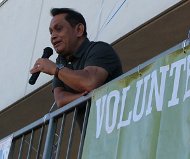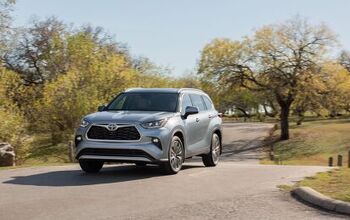California Legislature Considers Limiting DUI Roadblock Use
Confiscating automobiles has become a significant source of revenue for cash-strapped California cities. Last Tuesday, the state legislature gave preliminary approval to legislation to impose limits on the practice.
Under current law, municipalities run sobriety checkpoints funded almost entirely by $30 million in federal grant money. The drunk-driving (DUI) roadblocks catch comparatively few drunk drivers, so officers often focus on issuing as many tickets as possible for minor violations while cars are stopped. Assembly Bill 353 separates vehicle inspection checkpoints from DUI roadblocks and prohibits impounding of vehicles unless the alleged offense meets certain criteria.
Cars will be impounded from anyone suspected of driving while drunk or on a suspended license, unless the driver or a police officer can safely park the vehicle until a properly licensed driver can take it away. Some lawmakers see racial motivation behind current practice.
“Despite their original intent, sobriety checkpoints are increasingly being used to target drivers that are ineligible to obtain licenses in order to increase local revenue,” the bill’s sponsor, Assemblyman Gil Cedillo (D-Los Angeles), explained. “Frequently these checkpoints are set up in the areas that do not have a high correlation of DUI arrests or accidents; instead, they are placed in neighborhoods and, or locations where there are higher populations of low-income families and communities.”
Cedillo cited the Investigative Reporting Program at the University of California, Berkeley which calculated that at 3200 roadblocks in the past two years, 61 percent took place in locations with a heavy Hispanic population.
“While impoundments for DUIs are usually overnight, impoundment for driving without a license typically last for a term of 30 days,” Cedillo said. “Often, this effectively results in the forfeiture of the vehicle because the towing and impoundment fees may well exceed the value of the vehicle, which is apart from the fines already paid to local governments.”
Municipalities collect $150 from license fines imposed at roadblocks plus receive hundreds of thousands of dollars in fees from towing companies. Out of 24,000 vehicle impounds at DUI roadblocks in 2009, a mere 13 percent were related to drunk driving.
A copy of the legislation is available in a 160k PDF file at the source link below.
Source: Assembly Bill 353 (California State Legislature, 8/16/2011)
[Courtesy: Thenewspaper.com]
More by The Newspaper
Latest Car Reviews
Read moreLatest Product Reviews
Read moreRecent Comments
- Kwik_Shift_Pro4X At the taxpayers expense, as usual.
- Danddd Or just get a CX5 or 50 instead.
- Groza George My next car will be a PHEV truck if I can find one I like. I travel a lot for work and the only way I would get a full EV is if hotels and corporate housing all have charging stations.I would really like a Toyota Tacoma or Nissan Frontier PHEV
- Slavuta Motor Trend"Although the interior appears more upscale, sit in it a while and you notice the grainy plastics and conventional design. The doors sound tinny, the small strip of buttons in the center stack flexes, and the rear seats are on the firm side (but we dig the ability to recline). Most frustrating were the repeated Apple CarPlay glitches that seemed to slow down the apps running through it."
- Brandon I would vote for my 23 Escape ST-Line with the 2.0L turbo and a normal 8 speed transmission instead of CVT. 250 HP, I average 28 MPG and get much higher on trips and get a nice 13" sync4 touchscreen. It leaves these 2 in my dust literally


































Comments
Join the conversation
Consider the source. For those who don't live in CA, just Google "One Bill Gil" Cedillo's name and you'll see where this is coming from. If the man was white, he'd be wearing a KKK hat. Even though he allegedly represents a wide swath of Angelenos, he cares only for those whose skin color matches his. He represents the worst of the worst of us.
Here In Ontario it called "Reduce Impaired Driving Everywhere" or R.I.D.E.. They check for seat belts,drunks,dopers, unsafe cars. If you arn't drunk,stoned, unbelted or driving a beater, the Cops don't even ask for I.D. I don't 100 percent agree with the RIDE program. I personally believe that it puts a strain,on the already strained Police. However I don't care, my car is safe and I'm not drunk. A few years ago, after a string of rapes and murders, the cops set up a phony RIDE check. They were not looking for drunks. What they were looking for was a grey SUV with a particular tread pattern. So they stop an Airforce Colonel driving a grey Pathfinder. A Candian air force base comander,no less. The guy used to fly the Prime Minister around. He pleaded guilty to multiple rapes, and two murders. Declared "a dangerous offender" he will never be released. If hadn't of been stopped,who knows how many more he would have killed. So maybe RIDE programs do work.